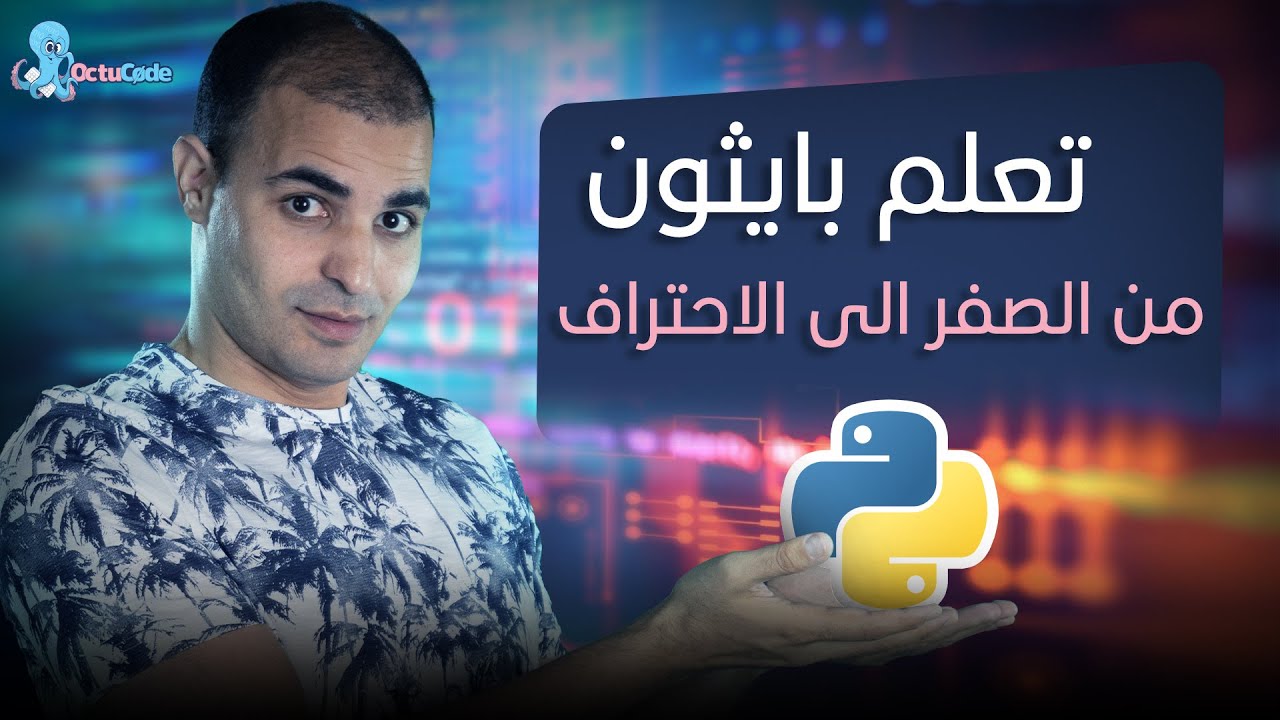What is Python? Why Python is So Popular?
Summary
TLDRThis video addresses the top 3 inquiries about Python, explaining its popularity and versatility. Python is praised for its simplicity, making it accessible to beginners and professionals alike. It's used in various fields, from data analysis to web development, and is valued for its ability to automate repetitive tasks. The script highlights Python's efficiency, high-level abstraction, cross-platform compatibility, and robust community support, positioning it as a top choice for job seekers and developers, with the average Python developer earning $116,000 annually.
Takeaways
- 🌟 Python is the world's fastest-growing and most popular programming language, favored by various professionals including software engineers, mathematicians, data analysts, scientists, accountants, and even kids.
- 🛠️ Python is beginner-friendly, making it accessible for people from different disciplines to use for a wide range of tasks.
- 📊 It is commonly used for data analysis and visualization, artificial intelligence, machine learning, and automation, especially for repetitive tasks to save time.
- 👩💼 Professionals like accountants, mathematicians, and scientists can use Python to simplify their work without needing to be software developers.
- 💻 Python can be used to build web, mobile, and desktop applications, as well as for software testing and other purposes.
- 🔑 Python's popularity is attributed to its ability to solve complex problems with fewer lines of code, offering a simple yet powerful syntax.
- 📝 The language is high-level, relieving users from tasks like memory management, which are required in lower-level languages like C++.
- 🔄 Python is cross-platform, allowing applications to be built and run on Windows, Mac, and Linux.
- 🤝 It has a large community and ecosystem, providing ample support and resources for developers.
- 💼 Learning Python opens up numerous job opportunities, with Python developers earning an average salary of $116,000 a year.
- 📚 The speaker offers Python tutorials for both beginners and experienced programmers, emphasizing the language's relevance and utility.
Q & A
What is Python?
-Python is a widely-used, high-level programming language known for its simplicity and versatility. It is popular not only among software engineers but also among professionals in various other fields such as mathematics, data analysis, science, accounting, and even among beginners.
What can you do with Python?
-Python can be used for a wide range of tasks including data analysis and visualization, artificial intelligence and machine learning, automation of repetitive tasks, web, mobile, and desktop application development, software testing, and even ethical hacking.
Why is Python so popular?
-Python is popular due to its beginner-friendly, simple, and clean syntax that allows users to solve complex problems with fewer lines of code. It's a high-level, cross-platform language with a large community and a vast ecosystem of libraries and frameworks, making it easier to find solutions and support.
How does Python compare to other programming languages?
-While you can accomplish many of the same tasks with other programming languages, Python's simplicity and elegance make it more efficient and enjoyable to use. It enables you to write shorter and cleaner code, which can save time and reduce errors.
What are some examples of tasks that can be automated using Python?
-Python can automate tasks like copying and renaming files and folders, uploading files to servers, working with Excel spreadsheets, PDFs, and CSV files, and downloading and parsing websites.
Do you need to be a software developer to use Python?
-No, you don't need to be a software developer to use Python. Professionals from various fields, including accounting, mathematics, and science, use Python to automate tasks and simplify their work.
What makes Python suitable for beginners?
-Python is suitable for beginners because of its simple and readable syntax, which is easier to learn and understand compared to other programming languages. Its high-level nature means you don't have to worry about complex tasks like memory management.
What platforms can you run Python on?
-Python is cross-platform, meaning you can run Python applications on various operating systems including Windows, Mac, and Linux.
Why is Python in high demand by employers?
-Python's simplicity, versatility, and wide range of applications have made it the number one programming language that employers are looking for. This high demand translates into numerous job opportunities and competitive salaries for Python developers.
What is the average salary of a Python developer?
-The average salary of a Python developer is around $116,000 per year, making it a lucrative skill to learn and master.
Outlines

This section is available to paid users only. Please upgrade to access this part.
Upgrade NowMindmap

This section is available to paid users only. Please upgrade to access this part.
Upgrade NowKeywords

This section is available to paid users only. Please upgrade to access this part.
Upgrade NowHighlights

This section is available to paid users only. Please upgrade to access this part.
Upgrade NowTranscripts

This section is available to paid users only. Please upgrade to access this part.
Upgrade NowBrowse More Related Video

#1 Python Tutorial for Beginners | Introduction to Python

تعلم بايثون من الصفر الى الاحتراف : كورس بايثون كامل للمبتدئين مجانا: ١

A Simple Python Program

Restaurant Data Analysis - Level 1 | Cognifyz Technologies Internship

Introduction to Python

Guido van Rossum: The TRUE History Behind The Python Programming Language
5.0 / 5 (0 votes)